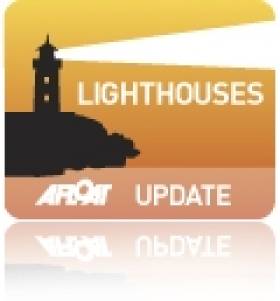Displaying items by tag: Lucifer Bank
After Buoy Damage Irish Lights (CIL) Requests Mariners To Report Defects to Aids to Navigation
#buoys – A vital Aid to Navigation buoy deployed by the Commissioners of Irish Lights to mark the Lucifer Bank on the South East Coast of Ireland has sustained significant damage due to a collision with an unidentified vessel on 13th May 2014. The day mark's electric system received extensive damage causing the lights to fail on the buoy.
Ireland's economy relies heavily on trade as approximately 95% of our imports and exports are carried on ships. Aids to Navigation such as Buoys, Beacons and Lighthouses are critical to the safety of all mariners, essential for our economy and are an integral element in the transport chain. These aids protect life, property, business and the marine environment while keeping the sea routes safely open and running smoothly. A missing aid can put lives at risk and unreported damage to these aids can have significant consequences.
Appealing for more responsible behaviour from seafarers, Captain Robert McCabe, Director of Operations and Navigational Services of the Commissioners of Irish Lights commented; "I am horrified to think that any seafarer would leave a damaged aid to navigation unreported. Such disregard for fellow seafarers is entirely at odds with our training and tradition. I appeal to mariners to report such incidents; the cost of repair will never outweigh the potential cost of a human life".
The tradition at sea has always been to immediately report damage so other users are notified and the aid can be restored without delay to its full working capacity. In a number of mounting cases, rogue mariners have damaged buoys and failed to take responsibility for their actions. The risk to such irresponsible action posed by these mariners dwarfs any potential cost to the perpetrators.
The Merchant Shipping Acts make provision for the imposition of a fine on any person who wilfully or negligently runs foul of, or makes fast to, any Buoy or Beacon, and for the recovery of the expenses for repairing any resulting damage. Mariners are requested to immediately report any defect in any Aid to Navigation either to the Commissioners of Irish Lights 24-Hour Monitoring Centre, telephone number +353-1-2801996 or to the nearest Coast Radio Station.
























































